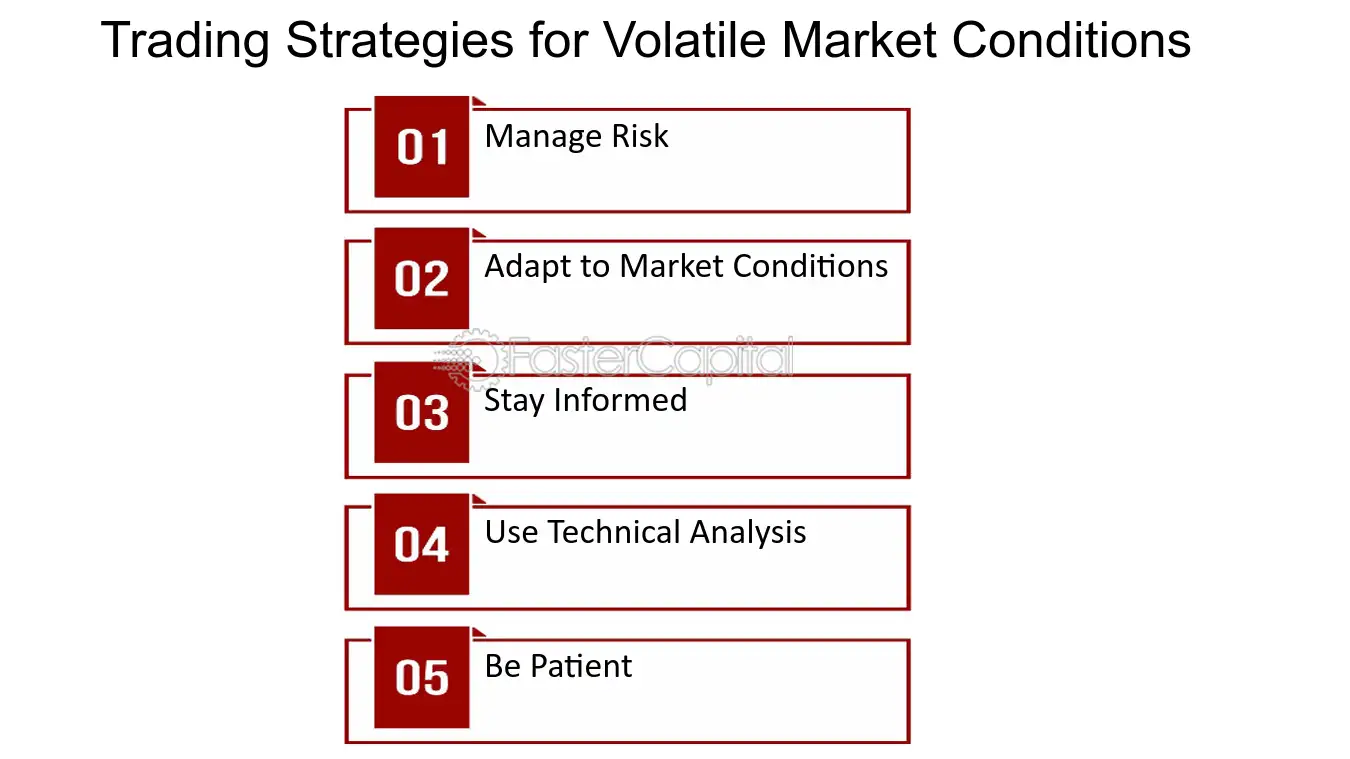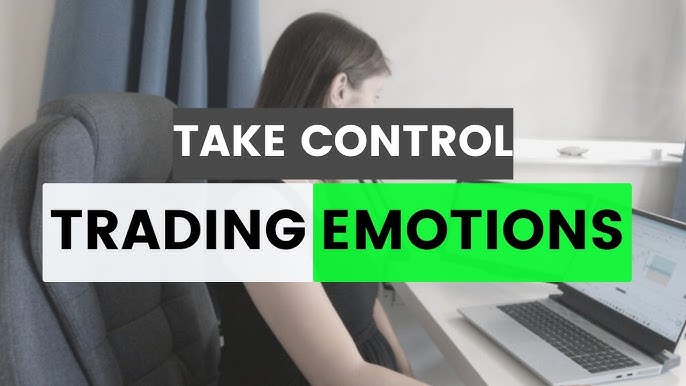Did you know that many traders have more emotional ups and downs than a soap opera? Emotional discipline in Forex day trading is essential for achieving consistent success. This article explores what emotional discipline means and its critical importance for traders. You'll learn how to develop this discipline, recognize common emotional challenges, and understand how emotions affect trading decisions. Discover techniques to manage your emotions, stay focused during market volatility, and the role patience plays in your trading journey. With insights on mindfulness, maintaining a trading journal, and strategies to combat fear and greed, this guide will help you navigate the emotional rollercoaster of Forex trading. Dive in with DayTradingBusiness to gain the emotional edge you need for long-term success!
What is emotional discipline in Forex day trading?
Emotional discipline in Forex day trading is the ability to manage your emotions, such as fear, greed, and anxiety, while making trading decisions. It involves sticking to your trading plan, avoiding impulsive actions, and maintaining focus during volatile market conditions. Traders with strong emotional discipline can better handle losses and stay calm under pressure, leading to more consistent performance and improved decision-making.
Why is emotional discipline crucial for Forex traders?
Emotional discipline is crucial for Forex traders because it helps them manage stress and avoid impulsive decisions. It enables traders to stick to their strategies, even in volatile markets, reducing the risk of emotional trading. By maintaining emotional control, traders can analyze market trends objectively, leading to better risk management and long-term profitability. Ultimately, emotional discipline fosters consistency, which is key to success in Forex day trading.
How can I develop emotional discipline for trading?
To develop emotional discipline in Forex day trading, start by setting clear trading goals and sticking to a well-defined trading plan. Practice mindfulness techniques to stay aware of your emotions during trades. Use journaling to reflect on your decisions and feelings, helping you identify patterns. Implement strict risk management strategies to minimize anxiety. Regularly review your trades to learn from mistakes and successes. Lastly, consider simulated trading to build confidence without real financial pressure.
What are common emotional challenges in Forex day trading?
Common emotional challenges in Forex day trading include fear, greed, anxiety, and frustration. Fear can lead to hesitation in executing trades or exiting too early. Greed may drive traders to take unnecessary risks, hoping for bigger profits. Anxiety often stems from market volatility, causing second-guessing and overtrading. Frustration arises from losses or missed opportunities, which can cloud judgment and lead to impulsive decisions. Developing emotional discipline is crucial to manage these challenges effectively.
How do emotions impact trading decisions in Forex?
Emotions significantly impact trading decisions in Forex by influencing judgment and risk tolerance. Fear can lead to hesitation or premature exits, while greed might cause overtrading or excessive risk-taking. Impulsive decisions often stem from anxiety or excitement, resulting in losses. Maintaining emotional discipline helps traders stick to their strategies and avoid emotional traps. Successful Forex traders practice self-awareness, set clear goals, and adhere to their trading plans to mitigate emotional influences.
What techniques help manage emotions while trading Forex?
1. Set Clear Goals: Define your trading objectives to maintain focus and reduce emotional decision-making.
2. Develop a Trading Plan: Create a detailed strategy that outlines entry and exit points, risk management, and position sizing.
3. Practice Mindfulness: Use techniques like meditation or deep breathing to stay calm and centered during trading.
4. Use Stop-Loss Orders: Implement stop-loss orders to limit losses and reduce anxiety about market fluctuations.
5. Keep a Trading Journal: Document trades and emotions to identify patterns and triggers, promoting self-awareness.
6. Limit Screen Time: Reduce the time spent watching charts to prevent emotional fatigue and overreacting to market movements.
7. Stay Educated: Continuously learn about market dynamics to build confidence in your decisions and reduce fear.
8. Take Breaks: Step away from trading when feeling overwhelmed to regain perspective and emotional balance.
9. Avoid Overtrading: Stick to your planned trades to prevent emotional responses that come from chasing losses or profits.
10. Cultivate Patience: Focus on long-term success rather than short-term gains to manage the emotional ups and downs of trading.
How can I stay focused during volatile Forex market conditions?

To stay focused during volatile Forex market conditions, establish a clear trading plan with specific entry and exit points. Use stop-loss orders to manage risk and avoid emotional decision-making. Set realistic profit targets and stick to them. Limit your trading time to prevent burnout and distraction. Regularly review your trades to learn from mistakes and successes. Practice mindfulness techniques to maintain emotional discipline and reduce anxiety.
What role does patience play in Forex day trading?
Patience is crucial in Forex day trading as it helps traders wait for the right opportunities and avoid impulsive decisions. It allows for careful analysis of market conditions, leading to better risk management and improved entry and exit strategies. With patience, traders can stick to their plans, reducing the chance of emotional trading, which often results in losses. Ultimately, being patient fosters emotional discipline, enabling traders to make calculated moves rather than hasty ones.
How can mindfulness improve emotional discipline in trading?

Mindfulness enhances emotional discipline in Forex day trading by helping traders stay present and aware of their thoughts and feelings. It allows them to recognize emotional triggers, like fear or greed, before reacting impulsively. By practicing mindfulness, traders can make more rational decisions, maintain focus during volatility, and avoid overtrading. This self-awareness fosters a calm mindset, leading to better risk management and consistent performance. Ultimately, mindfulness helps traders develop resilience, enabling them to stick to their trading plans even in stressful situations.
What are the benefits of maintaining a trading journal for emotions?
Maintaining a trading journal for emotions helps you identify triggers that affect your trading decisions. It allows you to track patterns in your emotional responses, enhancing self-awareness. By reflecting on your feelings after trades, you can learn to manage fear and greed more effectively. This practice promotes emotional discipline, helping you stick to your strategy despite market fluctuations. Ultimately, it improves your decision-making process and can lead to more consistent trading results.
How do successful traders handle emotional stress?
Successful traders manage emotional stress by maintaining a disciplined routine. They set clear trading plans with defined risk limits, which helps mitigate impulsive decisions. Regularly reviewing their trades allows them to learn from mistakes without dwelling on losses. They practice mindfulness and stress-reduction techniques, such as meditation or exercise, to stay focused. Additionally, successful traders often take breaks to avoid burnout, ensuring they return to trading with a fresh mindset. This emotional discipline is crucial for consistent performance in Forex day trading.
How Can Emotional Discipline Impact Success in Forex Day Trading?
Emotional discipline in Forex day trading is crucial for managing stress and making rational decisions. It involves staying calm during market fluctuations, avoiding impulsive trades, and sticking to your trading plan. Successful traders implement strategies to control emotions, such as setting clear goals, using stop-loss orders, and practicing mindfulness.
Learn more about: Understanding Forex Day Trading Markets
What are the signs of emotional burnout in Forex trading?
Signs of emotional burnout in Forex trading include persistent feelings of fatigue, irritability, and a lack of motivation to trade. You might notice increased anxiety over trades, difficulty concentrating, and making impulsive decisions. If you find yourself obsessively checking charts or over-trading, these are red flags. Additionally, feeling detached or apathetic about your trading results indicates burnout. If you’re experiencing frequent mood swings or second-guessing your strategies, it’s crucial to take a step back and reassess your emotional discipline.
How can I avoid impulsive trading decisions?
To avoid impulsive trading decisions in Forex day trading, establish a trading plan that includes clear entry and exit rules. Stick to your plan and avoid making trades based on emotions or market hype. Set a maximum loss limit for each day to prevent emotional trading. Use tools like stop-loss orders to manage risk. Regularly review your trades to learn from mistakes and reinforce discipline. Practice mindfulness techniques to stay focused and calm during trading sessions. Lastly, consider trading with a demo account to build confidence without the pressure of real money.
What strategies can help curb fear and greed in Forex?

To curb fear and greed in Forex, establish a solid trading plan with clear entry and exit strategies. Use stop-loss orders to manage risk and protect your capital. Implement position sizing to ensure no single trade significantly impacts your account. Stick to your plan, avoiding impulsive decisions based on emotions. Keep a trading journal to reflect on your trades and identify emotional triggers. Practice mindfulness techniques, such as deep breathing, to stay calm during volatile market conditions. Lastly, set realistic goals and expectations, reinforcing discipline and reducing emotional swings.
How does emotional discipline influence long-term trading success?
Emotional discipline is crucial for long-term trading success in forex day trading. It helps traders stick to their strategies and avoid impulsive decisions driven by fear or greed. By maintaining emotional control, traders can manage risk effectively and adhere to their trading plans, leading to more consistent results. This discipline also fosters patience, enabling traders to wait for optimal setups rather than chasing quick profits. Ultimately, emotional discipline ensures that traders remain focused and resilient, significantly increasing their chances of sustained success in the volatile forex market.
What resources can I use to learn about emotional discipline in trading?
To learn about emotional discipline in Forex day trading, consider these resources:
1. Books: "Trading in the Zone" by Mark Douglas focuses on the psychology of trading and emotional discipline.
2. Online Courses: Platforms like Udemy and Coursera offer courses specifically on trading psychology.
3. Webinars: Many trading platforms host free webinars that cover emotional management in trading.
4. YouTube Channels: Channels like "The Trading Coach" provide valuable insights into emotional discipline.
5. Blogs: Websites like Investopedia and BabyPips have articles on trading psychology and emotional discipline.
6. Forums: Engage in discussions on forums like Forex Factory to learn from experienced traders about emotional challenges and strategies.
Utilizing these resources will enhance your understanding and application of emotional discipline in Forex trading.
Conclusion about Emotional Discipline in Forex Day Trading
In conclusion, emotional discipline is a foundational skill for success in Forex day trading. By understanding and managing emotions, traders can make informed decisions, avoid impulsive actions, and navigate market volatility effectively. Techniques such as mindfulness, maintaining a trading journal, and developing patience are essential in this journey. Ultimately, cultivating emotional discipline not only enhances trading performance but also contributes to long-term success in the Forex market. For deeper insights and resources on mastering emotional discipline in trading, explore the offerings from DayTradingBusiness.